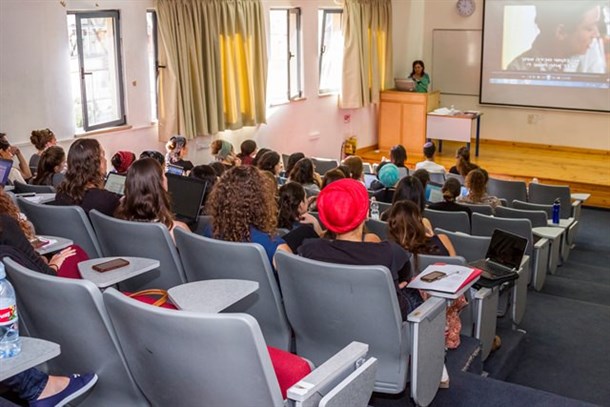

Modern lifestyles, the digital information revolution, and globalization processes have posed new challenges that necessitate updating the managerial toolbox. HAC’s new master’s degree program in Management opens new opportunities for students who wish to expand their insight and practice of new approaches to management.
The master’s degree program is intended for graduates of undergraduate degrees in the fields of management and business administration; graduates of undergraduate degrees in the social sciences (economics, public policy, government); and graduates of undergraduate degrees in the science professions, who wish to enhance their knowledge and managerial skills.
The program offers a range of courses such as Innovation in Service Organizations, Advanced Macro and Microeconomics, Service Planning and Strategic Management, International Marketing and Electronic Trading, City and Municipality Management, Sustainability as a Service Management Engine, Mechanisms for Self-Service in an Era of Mass Consumption, Financial Statement Management, Economics in the Global World, Data Systems for Managers, the OECD, Service in the Public Sector, the Israeli Startup – From Concept to Offers on the Exchange, etc.

Prof. Yosef Frost, Chair of the Department of Service Organizations Management at HAC:
“In today’s increasingly competitive and changing environment, managers and employees who understand the need to address new and dynamic trends, will accumulate the tools and know-how to analyze and examine modern management. They will also be able to plan and produce an experience and service insight as well as benefit from a significant advantage in the labor market.”
Prof. Frost continues: “Until now, studies have focused primarily on acquiring knowledge only. Knowledge can be acquired independently. The new program will focus on methodical tools and coping with managerial issues.”
Dr. Keren Mazuz, Head of the department’s curriculum:
“This degree integrates contents taken from the economics and business administration fields, while simultaneously focusing on the substantial management challenge of today: service delivery. Over recent years, the demand for managers able to develop service as a relative advantage of organizations has increased. In the modern economics of services, the traditional perception of a service has changed, and in the technological and global environment, organizations produce an application as an additional type of service. If in the past, people used to perceive companies such as Coca-Cola and McDonald’s amongst the list of the 10 largest companies in the world, today the leading companies are Amazon, Google and Facebook, which create service-orientated digital platforms and, which, have in fact, changed the rules of the game. Service-driven management is a global approach that redirects an organization’s actions, expands its strategic base, and deepens the perception of responsibility on the administrative and organizational level. The new program’s curriculum reflects this global trend.
A service-oriented manager focuses on 3 major fields, i.e., accompany the organization’s units for the purposes of examining and planning; concentrate and collect data, examining compliance with targets and identifying gaps; and promote and assimilate a code of ethics, nurturing service resources and conceptual change amongst the organization’s employees.
The master’s degree program consists of 4 semesters studied over 2 years, a total of 48 credit points. The studies have been adapted for working people and take place on Thursdays from 3 p.m. to 9 p.m. and Fridays from 8 a.m. to 2 p.m. Upon completion of studies, graduates will be awarded a master’s degree in Service Organization Management M.A.* accredited by the Israel Council for Higher Education
The study method is based on a study of peers, listening to others, and an examination of test cases. The academic staff focuses on presenting and discussing problems from the managerial field and universal challenges facing managers in the global era and in a competitive environment. Test cases, tools and management methods adapted to the changing managerial world will be studied. (For example, a discussion on the deployment of organizations for using the bitcoin currency, the rise of the technology giants and their effect on lifestyles, the global Teva Pharmaceutical company crisis). This study method generates group dynamics of developing innovative approaches for solving managerial and practical problems.
The curriculum framework includes studying theories on globalization and global trends, research methods for comparing and evaluating services, the analysis capabilities of service units during emergency and routine periods, the development of entrepreneurial capabilities, innovation and creativity etc. Furthermore, studies and experience will be possible in applicable research including the students’ final project. Additional courses offered include writing skills (in Hebrew and English), verbal expression, communications, group guidance and decision-making.

The prerequisite for students who have studied one of the management professions is an average grade of 80 in undergraduate studies. For students who do not come from the management field, there is a prerequisite for courses in micro and macroeconomics and additional supplements that can be completed within the college framework and pursuant to individual determination in accordance with their study curriculum in the undergraduate degree.
For the full acceptance conditions (Hebrew)
* The opening the master’s degree program in Organization Management has been approved by the Council for Higher Education. Granting the degree is conditional upon the Council’s final approval.